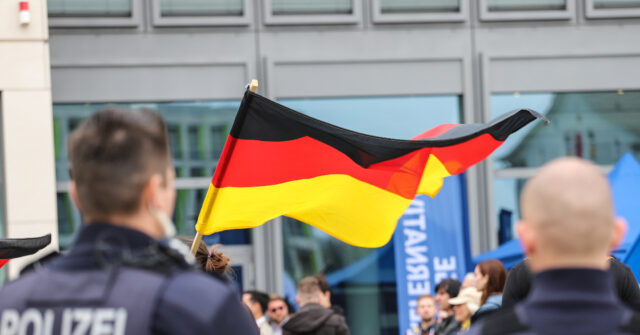More than eight in ten Germans said that they believe people are afraid to express their full opinions amid an increasingly censorious political climate in the country.
A survey published on Monday by the Institute for New Social Responses (INSA) found that 84 per cent of those surveyed believe that fellow citizens are self-censoring their opinions “because they are afraid of consequences.” In contrast, just nine per cent disagreed.
According to the pollster, this belief was shared across the political spectrum, with 77 per cent of supporters of the leftist-progressive Green party agreeing that people self-censor and 92 per cent of voters who back the populist-right Alternative for Germany saying the same.
When asked if they personally have hidden their true thoughts, 54 per cent said that they have had at least one experience when they did not feel able to speak freely. This represented a six-point increase since the pollster asked the same question just eight months ago.
INSA did find a striking divergence among age groups, with two-thirds of those under 30 saying that they do not feel free to express their beliefs, compared to 38 per cent for those over the age of 70, perhaps belying the fact that many young voters are turning away from establishment parties in favour of the AfD on the right and Die Linke on the left.
Although there was a broad consensus across the political spectrum acknowledging that other Germans are likely self-censoring, there was also a clear divide among supporters of various parties on whether they feel the need to hide their thoughts personally.
According to the survey, 76 per cent of AfD supporters reported self-censoring, followed by 69 per cent who support the leftist-populist BSW party, and 65 per cent of Die Linke voters.
In comparison, supporters of establishment parties felt freer to express themselves, with 42 per cent of Social Democrats reporting self-censorship, 41 per cent of Greens, and 47 per cent of Christian Democrats.
Commenting on the results, INSA said: “The topic of freedom of expression has the potential to become just as influential as migration from 2015 and Corona from 2020. Politics as well as the media and society as a whole should take this seriously.
“Only with a good culture of debate and the acceptance of a broad diversity of opinions will the majority of the population be convinced that freedom of expression applies without restriction in our country and that it is also a convincing reason for standing up for and defending this country.”
The issue of free speech in Germany was highlighted earlier this year by U.S. Vice President JD Vance during an address before the Munich Security Conference in February. Vance warned that the greatest threat facing Europe did not come from China or Russia but rather the erosion of liberties “from within”.
Vance also criticised Berlin for enacting a political “firewall” around the populist Alternative for Germany (AfD) party. Since his speech, the government has gone even further, with the internal BfV political spy agency branding the party as an “extremist” organisation, a step paving the way to more state surveillance of the party and potentially laying the groundwork for an outright ban.

















